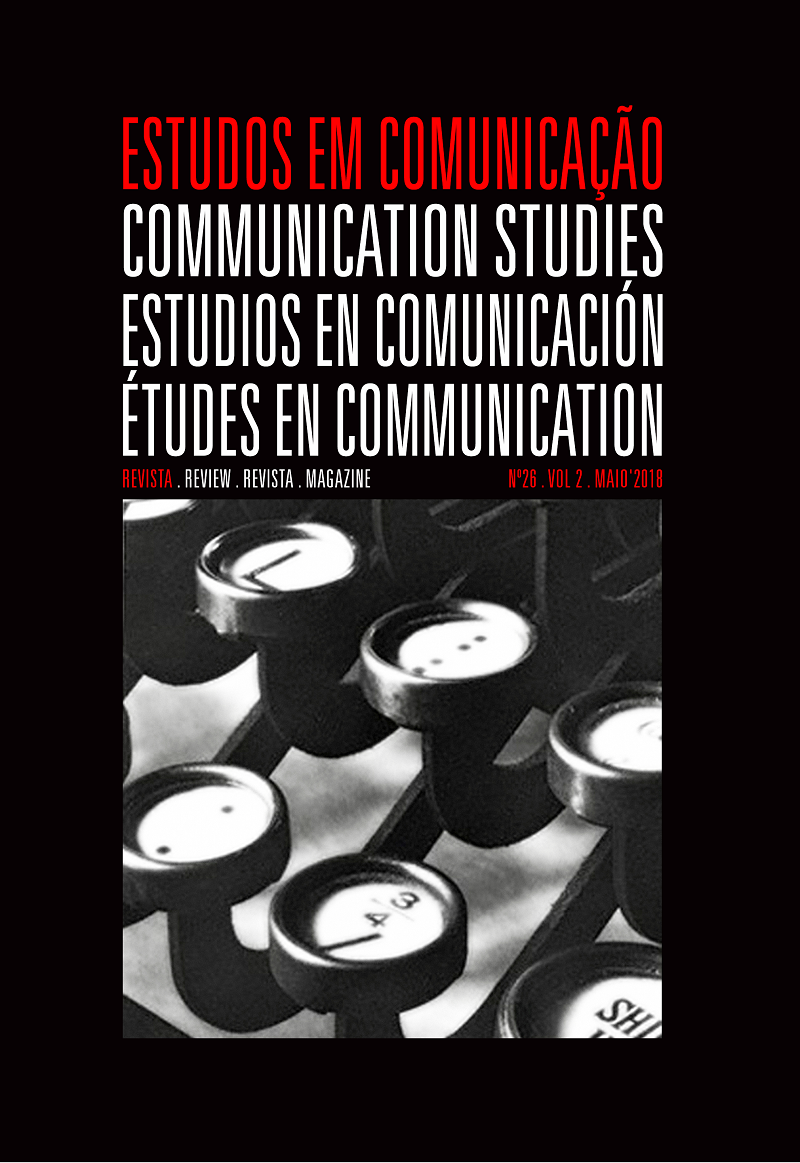El rol de internet para romper el silencio: el ejemplo de dos casos en américa latina, Marcelo Freixo en Brasil y Sebastián Piñera en Chile
Keywords:
internet, public space, democracy, Brazil, Chile.Abstract
The media are a privileged space for society to talk to itself and about itself (França, 2012). Currently, most households have access to the Internet, the- refore, through this "new media"we can give visibility to events and events that the so-called "traditional"media do not want to address or insist on silencing. From this perspective, and through two examples from Brazil and Chile, we seek to deepen on how the Internet can be used as a tool to "break the silence"in light of current democracies influencing public opinion (Miège, 2010). As Car- don (2010) points out, the internet widens the public space, transforming the very nature of democracy. Likewise, this reflection aims to revitalize the discussion on the role of online media in the face of cases of public interest, remaining at the frontier between power and citizenship. In the cases of Chile and Brazil, the above mentioned takes on a particular meaning since traditional media, throughout history, have been controlled by governments and corporations, so that social networks and the Internet appear as spaces of autonomy ( Castells, 2012). In this context, a semio-discursive analysis was applied (Charaudeau, 1995, 2011) to different media from the network that deals with two cases of political figures, a) the official account of Marcelo Freixo on Fa- cebook and b) the articles from an electronic newspaper in Chile ("El Mostrador") that link Sebastián Piñera with the "Panama Papers. The first corresponds to the candidate of the municipality of Rio de Janeiro Marcelo Freixo of PSOL, who in 2016, managed to mobilize a good part of society to reach the second round of the elections, with only 11 seconds of electoral propaganda authorized on television and on the radios. The second case corresponds to the former Chilean president, Sebastián Piñera, who during the maritime negotiations in Chile and Peru in the Hague had made investments in Peruvian companies that were based in Panama using privileged information. The theoretical and methodological aspects followed by the analysis and the main results of this investigation are presented below.
References
Cardon, D. (2010). La démocratie internet. Paris: Seuil.
Cardon, D. & Granjon, F. (2013). Médiactivistes. Paris: Presses de Sciences.
Castells, M. (2012). Redes de indignación y esperanza. Madrid: Alianza editorial.
Charaudeau, P. (1995). Une analyse sémiolinguistique du discours. Revue Langages, 29(117), 96-111.
Charaudeau, P. (2011). Les médias et l’information. L’impossible transparence du discours. Bru- xelles: De Boeck.
Charaudeau, P. (2013). El discurso de la información. La construcción del espejo social. Barce- lona: Gedisa.
Fraça, V. (2012). O acontecimento e a mídia. Galaxia (São Paulo, Online), (24), 12.
Gomes, W.; Fernandes, B.; Reis, L.; Silva, T. (2009). Politics 2.0. A campanha on-line de Barack Obama em 2008. Rev. Sociol. Polít., out., 17(34), 29-43.
Heinderyckx, F. (2011). Obama 2008: l’inflexion numérique. Hermès, La Revue, 1(59), 135-136.
Jamil, F. P. & Sampaio, R. (2011). Internet e eleições 2010 no Brasil: rupturas e continuidades nos padrões mediaticos das campanhas politicas online. Revista Galaxia, dez., (22), 208-221.
Maingueneau (2011). Analyser les textes de communication. 2e édition. Paris: Armand Colin.
Massuchin, M. G. & Tavares, C. (2015). Campanha eleitoral as redes sociais: estratégias empregadas pelos candidatos à Presidencia em 2014 no Facebook. Revista Compolítica, 5(2).
Miege, B. (2010). L’espace public contemporain : approche info – Communicationnelle. Grenoble: PUG.
Moirand, S. (2007). Les discours de la presse quotidienne. Paris: Presse universitaires de France.
Obermayer, B. & Obermaier, S. (2016). Le secret le mieux gardé du monde. Paris: Seuil.
Perrot, E. (2016). Les paradis fiscaux à l’ombre de la morale. Études, juin, (6), 29-40.
Zucman, G. (2013). La richesse cachée des nations. Paris: Seuil.
Downloads
Published
Issue
Section
License
Estudos em Comunicação/Communication Studies is an Open Access journal. All its content is freely available without charge to the user or his institution. Users are allowed to read, download, copy, distribute, print, search, or link to the full texts of the articles in this journal without asking prior permission from the publisher or the author. Estudos em Comunicação, by Labcom, is licensed under a Creative Commons Atribuição-NãoComercial-SemDerivações 3.0 Unported License. By submitting your work to Estudos em Comunicação/Communication studies you confirm you are the author and own the copyright, that the content is original and previously unpublished, and that you agree to the licensing terms.


